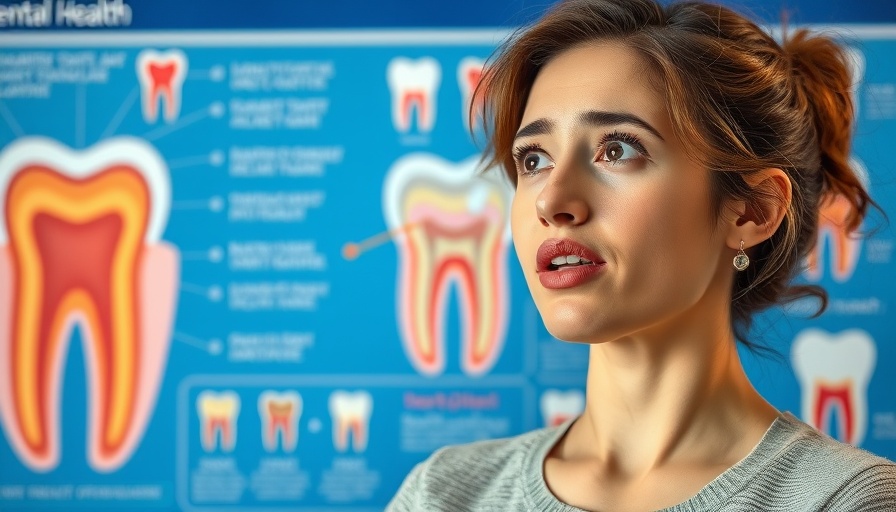
Understanding the Rise of Teeth Grinding
In today’s fast-paced world, stress seems to have crept into every aspect of our lives, and its impact is not just emotional – it manifests physically as well. Recent studies indicate that over 70% of dentists have observed a significant rise in teeth grinding and clenching, a condition medically termed as bruxism. This behavior is not merely a bad habit; it's a response to the heightened stress levels many experience, especially in the wake of recent global events.
In 'more teeth grinding lately? #shorts', the discussion dives into the growing concern of bruxism, exploring key insights that sparked deeper analysis on our end.
What Causes Bruxism?
While stress is a major factor contributing to bruxism, other underlying issues can also play a role. Sleep disorders, particularly conditions like sleep apnea, have been linked to teeth grinding. Misaligned or crooked teeth can lead to improper jaw alignment, exacerbating the issue. Lifestyle choices, such as tobacco and alcohol use, further increase the likelihood of grinding your teeth. Furthermore, because bruxism often occurs at night, many individuals remain oblivious to their grinding habits.
The Importance of Early Detection
Regular visits to your dentist are crucial for early detection of bruxism-related damage. Dentists have the tools and expertise necessary to spot signs of teeth grinding, such as worn enamel, chipped teeth, or jaw pain. As part of your dental checkup, ask your dentist about symptoms related to bruxism.
This proactive approach not only safeguards your dental health but also opens avenues for addressing any underlying issues.
Protecting Your Teeth
While night guards are commonly recommended to protect your teeth during sleep, they do not eliminate the act of bruxism itself. Instead, they serve as a barrier, preventing tooth damage. For comprehensive care, consider coupling the use of night guards with effective stress management techniques such as yoga, meditation, or even consulting a mental health professional to address anxiety. If sleep disorders are a concern, discussing these with your doctor can lead to targeted treatment.
Practical Steps to Consider
There are several strategies you can implement to reduce the risk and impact of bruxism:
- Manage Your Stress: Engage in activities that help you relax, such as reading, exercising, or exploring creative hobbies.
- Consult a Specialist: If your teeth alignment is contributing to your bruxism, talking to an orthodontist about treatments like braces or Invisalign may provide relief.
- Focus on Oral Hygiene: Maintaining good oral health can prevent additional problems. Regular dental cleaning sessions and an excellent dental hygiene routine are key components.
Addressing Common Myths
There are many misunderstandings surrounding bruxism. Some individuals may believe that it’s merely a result of anxiety without realizing the role of factors like tooth misalignment. It’s vital to have an open conversation with your healthcare providers to debunk these myths and focus on tailored prevention strategies based on accurate information.
Incorporating Healthy Habits
Considering your habits can yield long-term benefits for your dental health. Incorporating routine dental checkups into your calendar, investing in quality oral care products, and prioritizing your overall well-being can significantly reduce the impacts of bruxism. Making these adjustments is not merely a matter of aesthetics but essential for maintaining function and comfort in your dental health.
Conclusion: Strive for Dental Wellness
As awareness of bruxism increases, it becomes more important than ever to take proactive steps in maintaining dental health. Regularly monitoring stress levels, understanding the connections between lifestyle choices and dental health, and seeking professional advice can make a significant difference. Remember, managing your stress effectively is not just good for your mental health; it is equally beneficial for your teeth.
 Add Row
Add Row  Add
Add 




Write A Comment